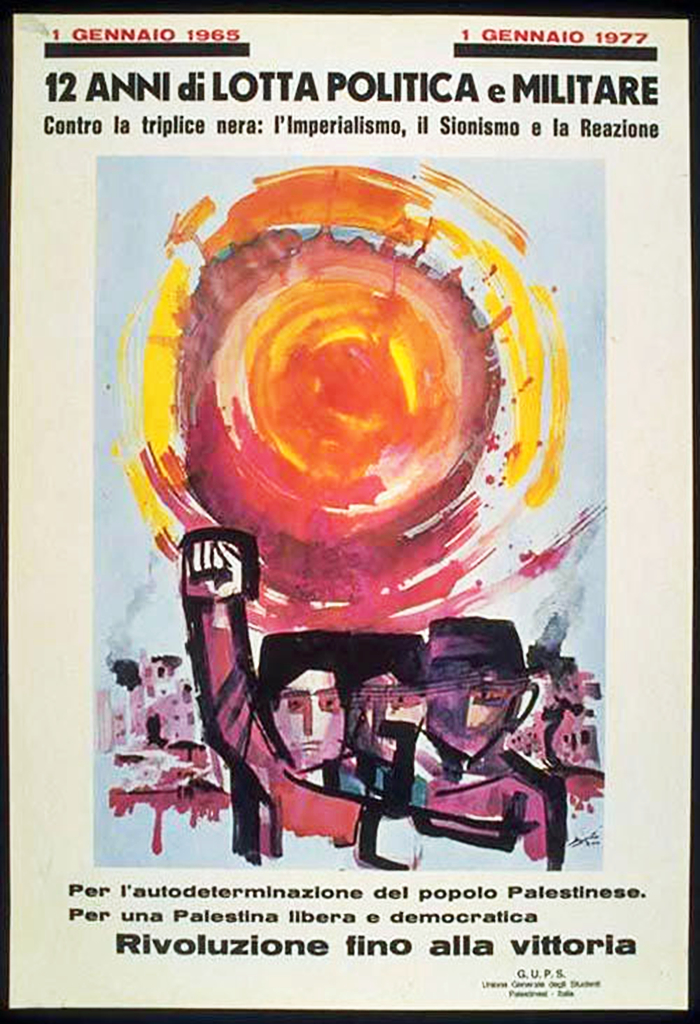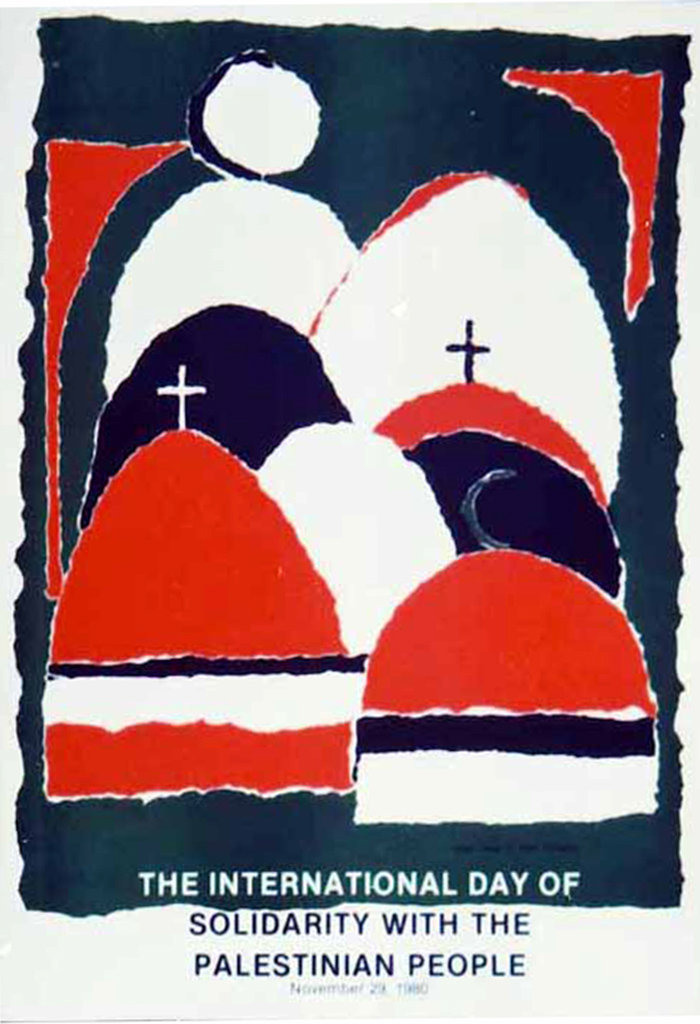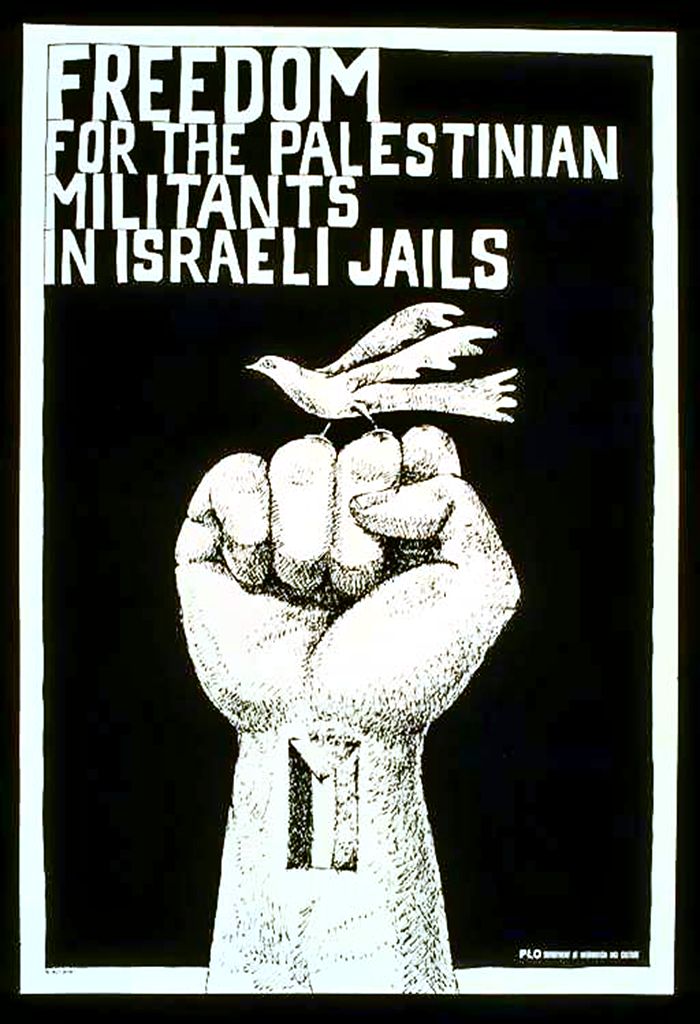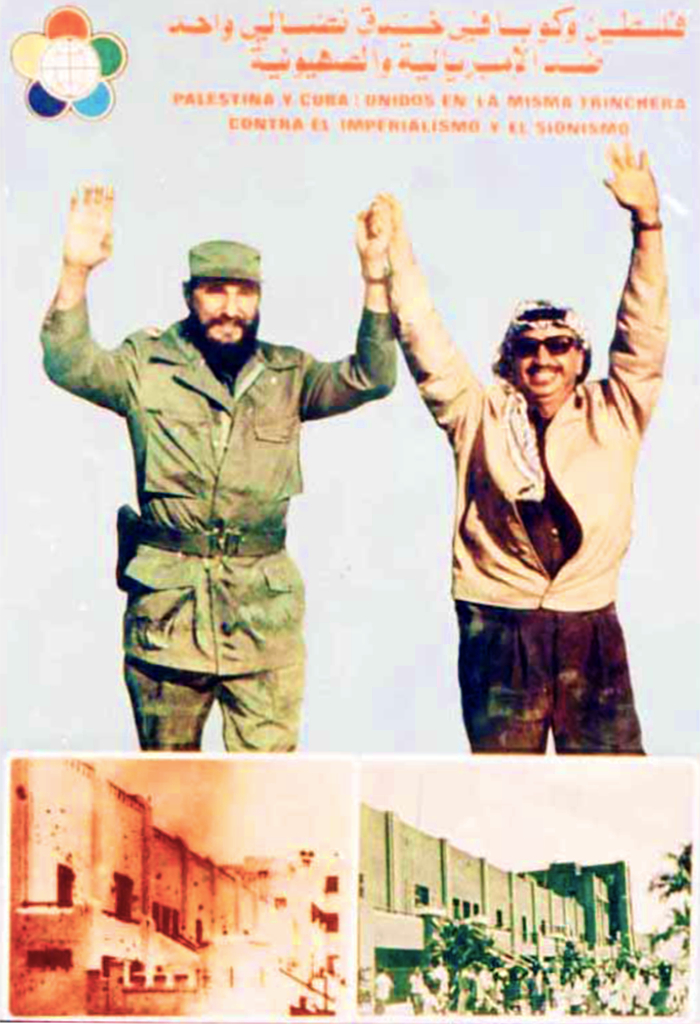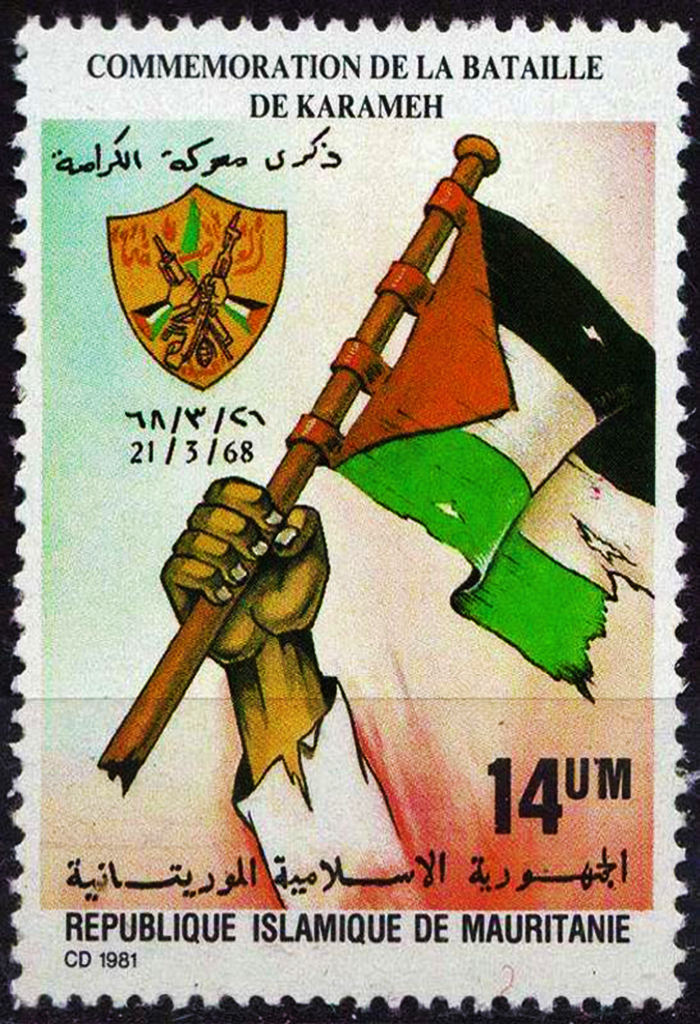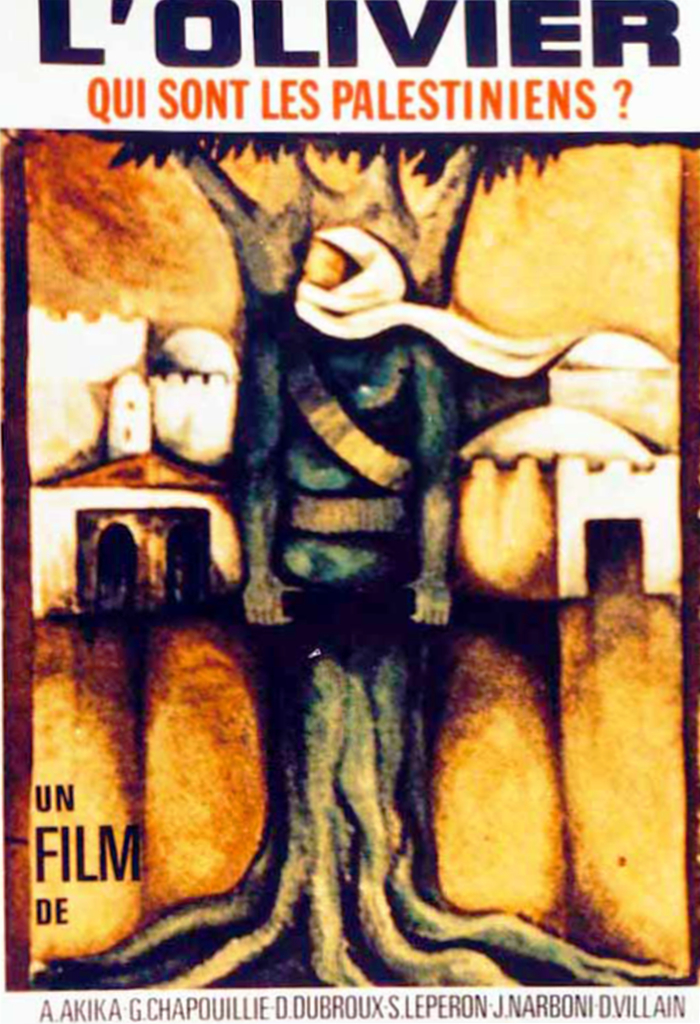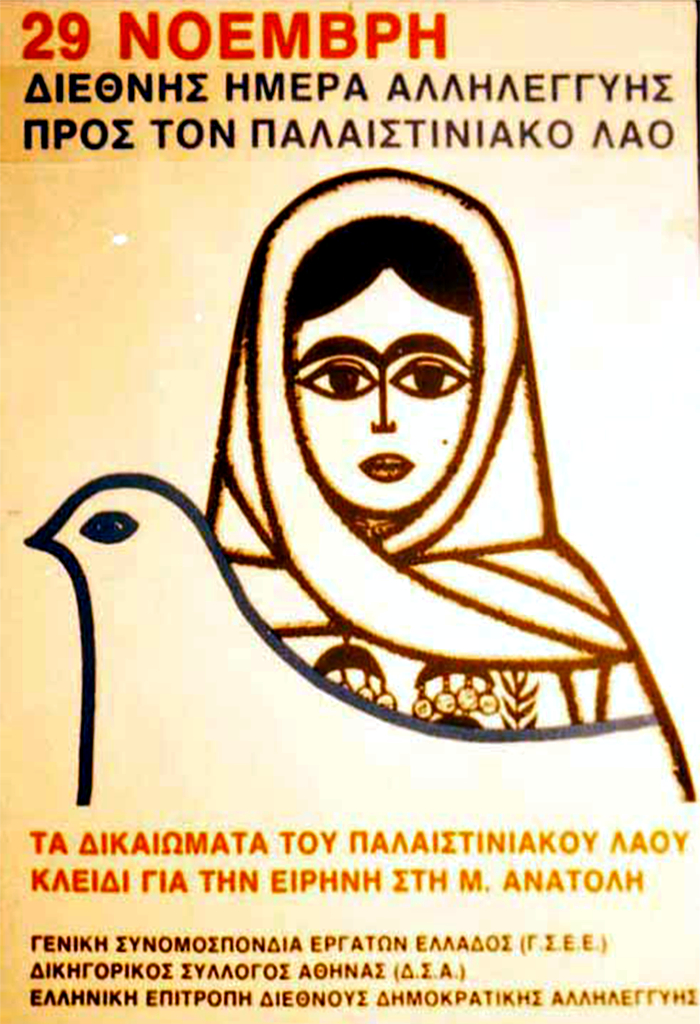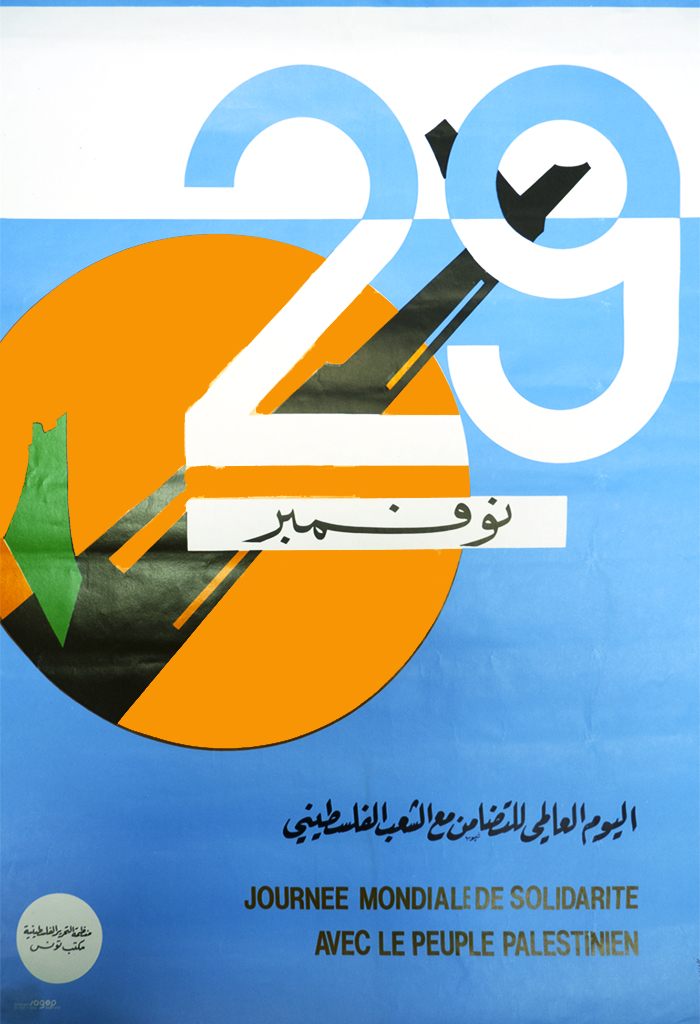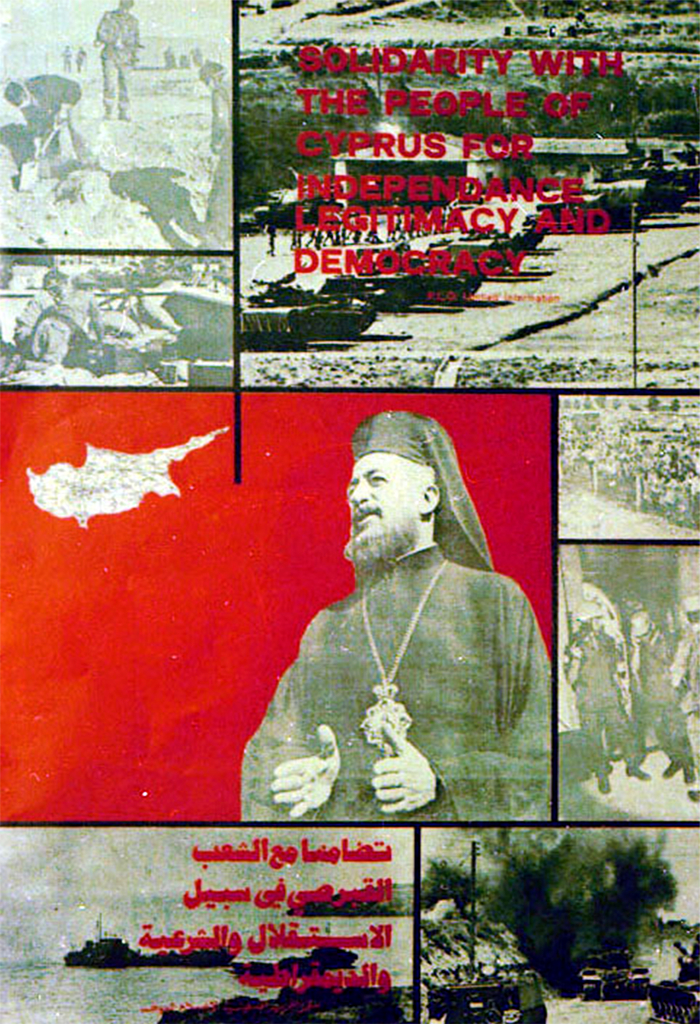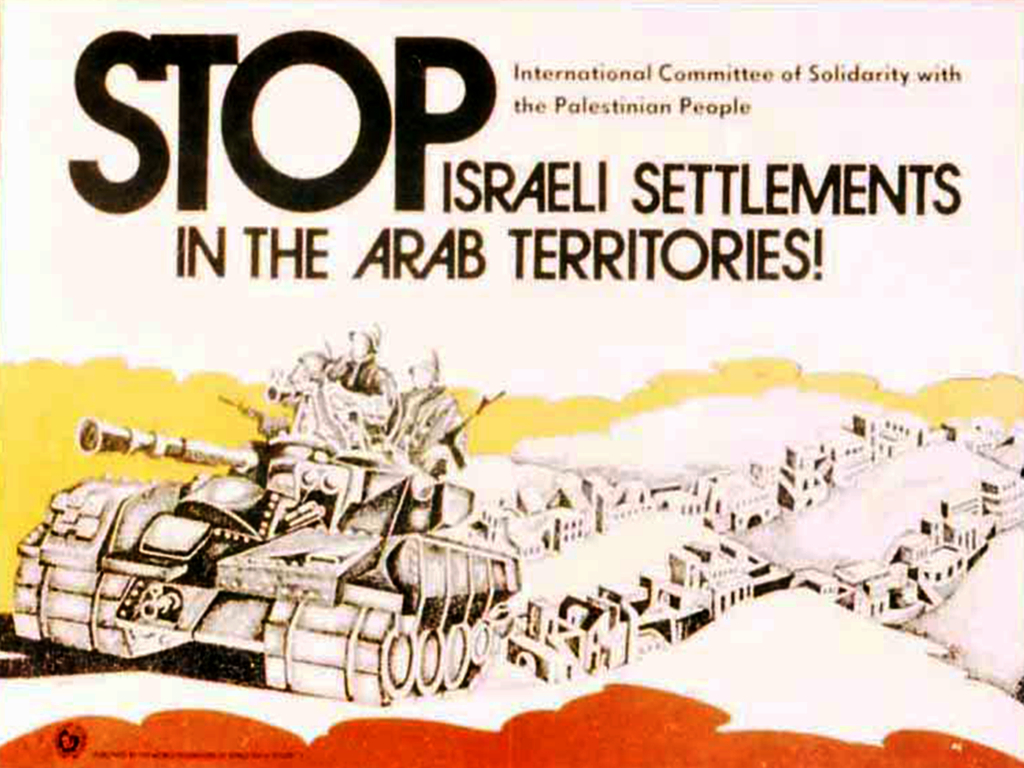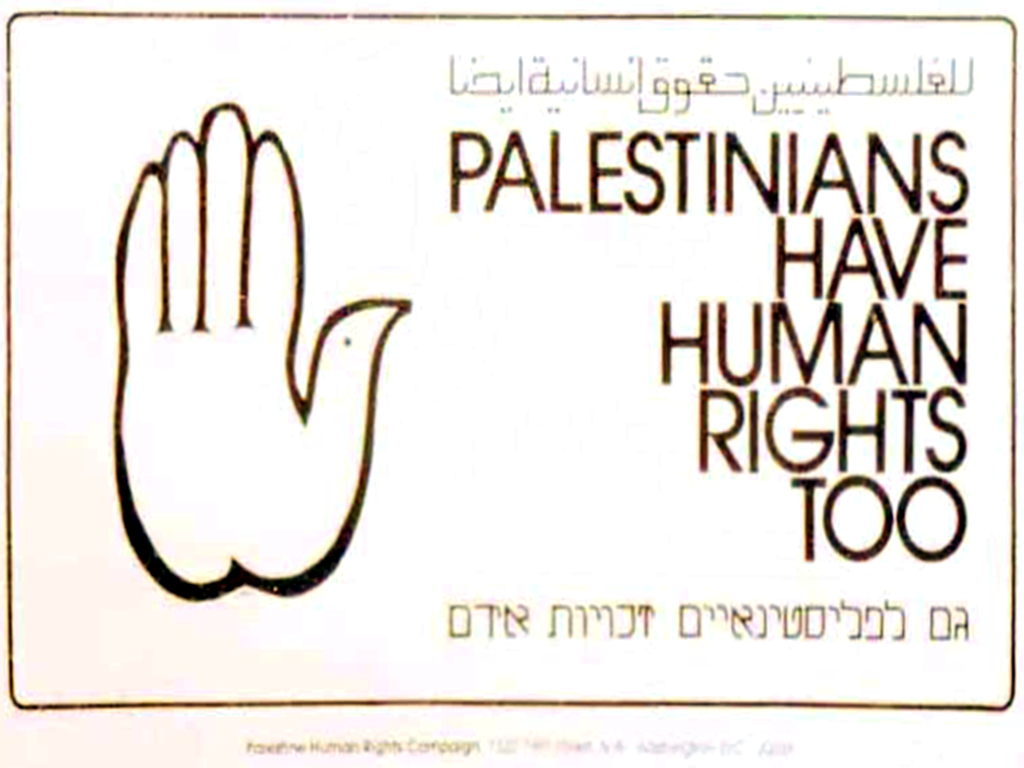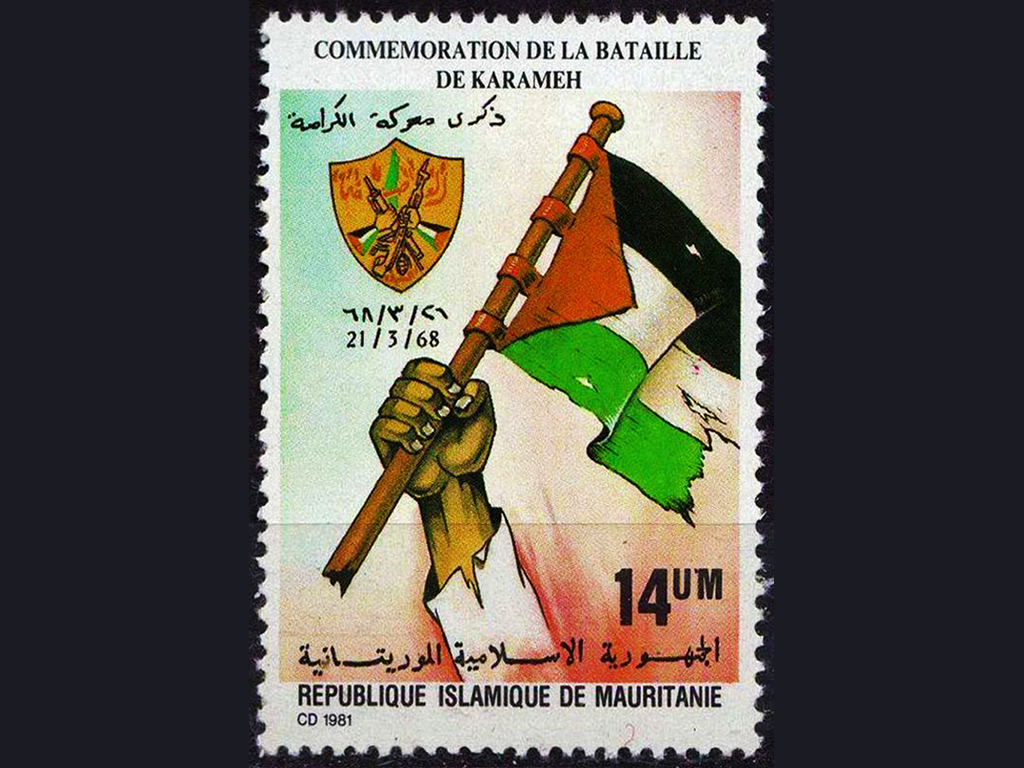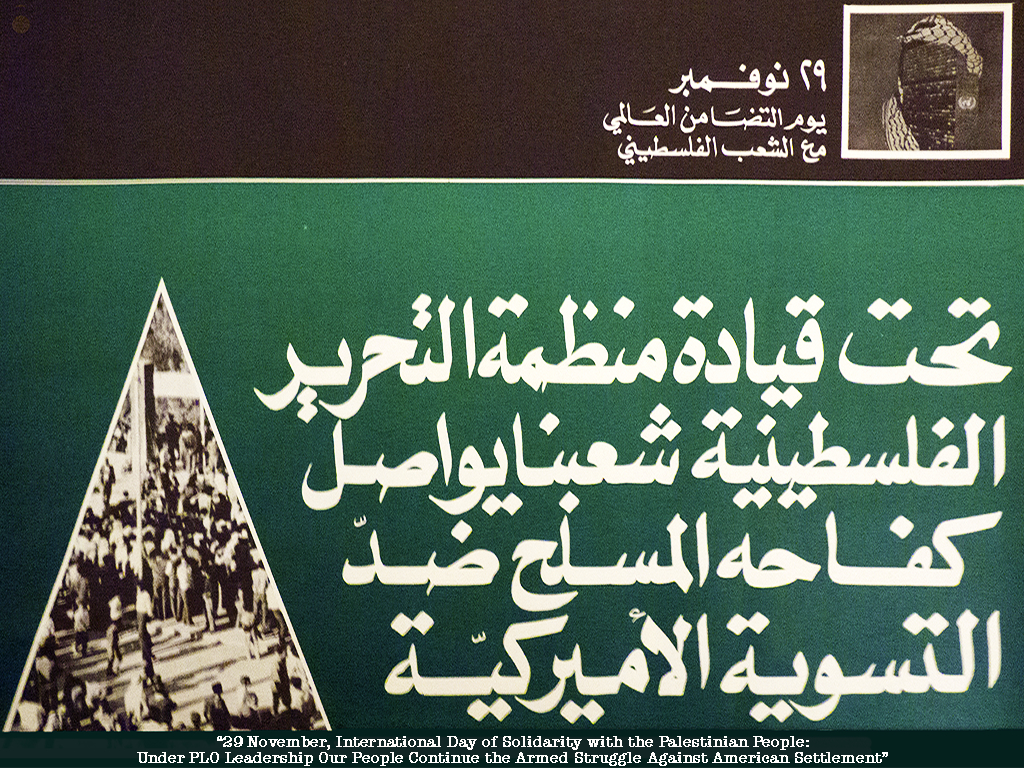The Palestinian revolution was the longest running, and most widely supported struggle in modern Arab history, and one of the foremost anti-colonial struggles of modern times. The range of impacts, influences, and the sheer prominence of the Palestinian revolution in the world are reflected in moments of solidarity, internationalism, and diplomatic action.
Relations with sister revolutions led to numerous moments of solidarity. A particularly strong bond existed with Algeria. The FLN inspired the Palestinian strategy of armed struggle the union of different political groups under a common banner. After independence, Algeria became a loyal and reliable source of political, military, and logistical support. The establishment of official representation in that country was an important moment in the history of solidarity with Palestine.
There were moments that witnessed remarkable diplomatic breakthroughs. This included the Arab League Rabat Summit of October 1974, which saw the recognition of the PLO as the sole legitimate representative of the Palestinian people.
Moments were often connected to each other: the Rabat Arab League Summit decision on the recognition of Palestinian representation paved the way for Yasser Arafat’s 1974 address to the United Nations. This was one of the landmark Palestinian diplomatic achievements in the 20th century, leading to the recognition of the inalienable rights of the Palestinian people in their homeland Palestine, with the PLO as their sole legitimate representative. It also resulted in the PLO’s participation in the UN as an observer member. The Question of Palestine, which had been removed from the UN agenda in 1952, was now back in full force.
The 1974 UN moment allowed the Palestinian revolution to expand its international reach. Within the UN, a flurry of activity took place, leading to the establishment of the Special Unit on Palestinian Rights (later upgraded to a division), along with the designation of November 29 as the International Day of Solidarity with the Palestinian People.
As a result of decolonisation, the United Nations was now filled with representatives from the Arab world, Africa, Asia, and Latin America strongly sympathetic to the Palestinian cause, having shared its aims. Some, such as George Tomeh, Syrian Ambassador to the UN between 1966 and 1972, were experts on Palestinian rights. However, the absence of official Palestinian presence meant these inalienable rights of the Palestinian people were not fully represented at the UN, and why the PLO's diplomatic campaign of 1974 was so crucial for furthering them in the very arena where sovereign national rights were internationally recognised.
Beyond the UN, the 1974 UN moment gave momentum to Palestinian efforts at developing representation across the world, and a major upgrading of Palestinians’ official status in countries with which they already had strong relations, such as China.
Moments of solidarity came out of a general Arab popular commitment to the Palestinian cause. In the Gulf, for instance, Kuwait developed as a strong base of support. It not only provided a space for fundraising, but also offered strong interventions in international fora including, for instance, sporting events and federations.
Progressive spaces, such as international women’s conferences, also witnessed significant moments of solidarity. Liberation movements, including the Palestinian, worked together in these settings, developing platforms that supported the revolutionary struggle and the inalienable rights of the Palestinian people.
Other moments were brought about through an international response to major crises, such as the 1982 Israeli invasion of Lebanon. This was an example of a heightened moment of solidarity in which accumulated work, such as the networks established in earlier years, came into fruition. Numerous countries, liberation movements, leaders, intellectuals, doctors, fighting volunteers, and artists came together in support of the besieged Palestinian revolution in an unprecedented outpouring of international solidarity.
